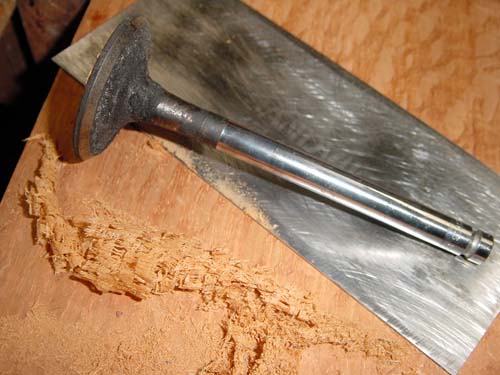Hey guys -I have to go study, and read another couple chapters of Mr Cumpianos book, more shop organization, rasps and files to handle with that lovely little dogwood blowdown wood, and jigs to figure out supply lists for -
But I posed a question at another site about Old School construction methods
I hover around the luthier sites looking for information and tips on construction methods, as I am just getting started in the trade.
{although this has been a lifelong dream}
Some tools are just out opf my reach financially right now.
Gladly places like exist, as it helps one who needs information about problems they might encounter, acquire the info nearly immediately, and these forums speed up the learning curve for newbs and oldtimers alike.
One thing I have spoken with some builders about briefly was the use of construction methods of yesteryear, the low tech but effective methods employed by the masters of old
[in thier creation of thier masterpieces, works that all us luthiers out here seek to emulate with our high tech gadgets and machines].
I was wondering what low tech yesteryear methods of construction people could lay down on a newbie?
Like most newbs I dont have all of the top tools with which to create my work, and thus tips of low cost but effective construction methods would greatly aid not only to my succesful completion of my #1,
but also direct my care and attention to the materials being used, as these OG methods of which I speak help a new luthier get attuned to the different woods and thier intracacies; more so than just ripping through it/them with a machine, and glossing over it.
Wouldnt you agree?
Someone I know was talking to me about demonstrating a old school method of joining top and back plates.
RusselR wisely suggested the use of a gobar deck
[will do on that one definitely!]
RusselR also suggested I set my guitar on fire!!! - Its not what your thinking, mabye he can elaborate for us if he see's this.
{RR ... Im still busting a gut

 }
}
QUESTION: Does anyone else have any tips or forgotten {hand crafted}/low tech (i.e. cheap) methods, that they would like to bring up?
As it would greatly interest me to know some of these Old School methods and it might help me to accomplish my first build more effectively and cost effectively.
Lord Knows that any money from my first sale will be goig directly back into guitar building supplies and tools! Til then......................
Cheers
Charlie






